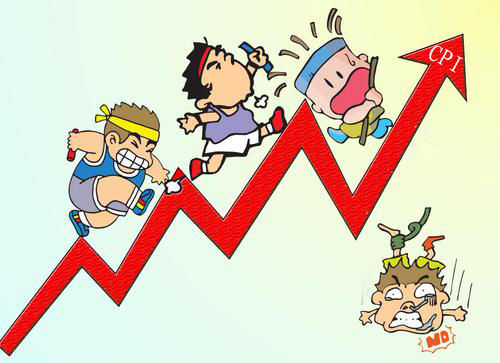Here goes on a personal roundup of what marked mainland China's 2007, a year of controversy, change, desperation but also hopes.
“Dark brick kilns” 黑砖窑
May
Inside scores of dark kilns, about 400 workers were forced to toil in a condition on par with slavery. They were swindled to these brick kilns, overseen by hired thugs and had to work 20 hours a day. They lacked food and carried the red-hot bricks directly on the back, suffering from occasional beating-up. They were the “modern salves” found in Hongdong (洪洞) county, Shanxi province, who had long suffered from the mental and physical traumas in a place out of law.
What is more thrilling is the malfeasance of the local government that should have eliminated the “black kilns”. Nevertheless, it ignored, and even became a ring of the wicked interest chain. In some way the local government connived and shared this crime. Through the investigation, a kiln owner was found exactly the son of a village governor. Up till now, over 30 criminals have been tried and over 90 officials got punished, but the public opinion suggested many inner-party penalties, rather than the jural, didn’t hit the point
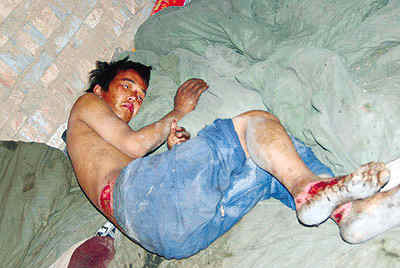
Tai Lake pollution 太湖水污染
May
Tai, a beautiful lake and the water source of millions of citizens, was suddenly occupied by thick blue algae in May, 2007, the whole water area stinking. The smelly running water supplied to the city Wuxi(无锡) came to be almost undrinkable and therefore triggered a panic buying of purified water. The apple of discord is the thousands of lake-side factories, which produced GDP while at the same time pouring pollution into the lake. The author of The End of South-Su Mode(苏南模式的终结), Doctor Xinwang, suggested the water crisis told the method of development by the cost of the environment was about to bankrupt. After the crisis the government has scheduled to shut down nearly 3000 high-pollution factories such as print and chemical works.

Fenghuang bridge collapse 凤凰塌桥
August
“The company strictly followed the national regulations to carry out the construction, and in pursuit of high-quality. No accident has ever happened and no corruption report has been received……” This is a piece of news issued a few days before the bridge collapse that claimed 64 people. The construction had been planned as a “gift” for the 50th anniversary of the establishment of Xiangxi State and was hasted to catch the celebration. Ridiculously, an alleged high-quality construction nonetheless made one of the most serious accidents in 2007. Not many reinforced steel bars could be found among the ruin, a fact that poked the eyewash and proved the malfeasance. It once again stroke people’s faith on the so-called “face construction”, or “political-achieve construction”. 24 people, including some officials, were sued.
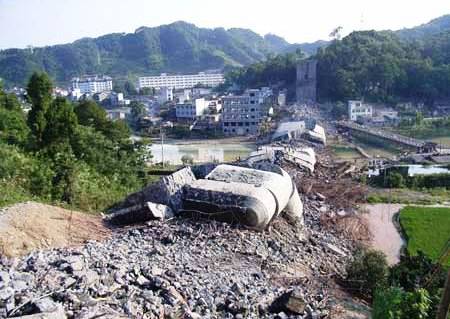
Huawei mass resignation 华为辞职门
September
7000 employees were urged by the Huawei Technologies to resign so that the company could avoid signing open-ended contracts with them. According to the new Employment Contract Law, the new contract, which should be signed with employees that have worked over ten years, had no fixed term so the workers would serve just like permanent staff. To shun the future personnel cost, Huawei determinedly persuaded the mass resignation even though it had to pay the $1.34 billion compensation. Later, the workers had to compete to regain the jobs. The action incurred Huawei a bad fame among the public because it was thought to be an ignorance of social duty. But many companies also grumbled about that the new law that focuses on labor right would hurt much of their competence. What effect it might bring to Chinese economy is yet uncertain.

Pengyu case 南京彭宇案
September
In 2007, the most well-known lawsuit resulted from a ridiculous judgment, as most netizens thought. Pengyu, a young man in Nanjing, told that he sent an old woman who got bumped down on the road to hospital because of a warm heart. However, he was sued by the woman, because she accused Peng was actually the wrongdoer. The fact was yet unknown, but the judge’s sentence based on reasoning rather than evidence pushed the public to the other side. As the judge “deduced”, if Pneg had not slammed into and hurt the woman, he would not have helped her. The public was puzzled whether it was a joke or a real sentence. But there is one thing for sure; in the eyes of the judge, there is no more Samaritan in China.
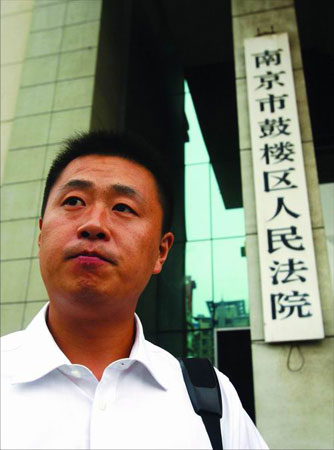
Chang’e 1 lunar probe 嫦娥升空
October
In 2007, Chang'e 1 blasted off on a Long March 3A carrier rocket, marking the first stage of China's 10-year lunar exploration program. On 26th, November, it sent back its first picture of the moon landscape. Reaching the moon has been a dream of Chinese for thousands of years, and today we are so close to it.

17th CPC National Congress 十七大召开
October
In 2007, the biggest political event of China is surely the 17th CPC National Congress. The congress reaffirmed the path of opening and reform, and gave further focus on the “scientific outlook on development”(科学发展观), “Socialism with Chinese characteristics”(中国特色的社会主义) and a determination to build a harmonious society(和谐社会). The lineup of the top leaders went through a slight reshuffle with 4 new persons ushered into the 9-member Political Bureau's Standing Committee. By the change, Hujingtao consolidated his power. The coming 5 years would be a key time to examine whether the new leading agency was able to solve the existent social problems. The public expect that CPC could fulfill its promises and led us to go better.
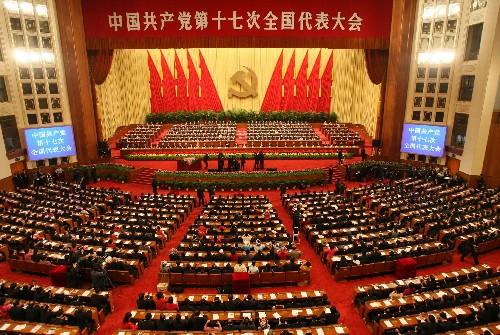
Bankruptcy of Yilishen 蚂蚁门 (information blocked on mainland)
November
Yilishen, a well-known company that sold health-care ant products closed in November. A huge amount of investment by many ant farmers vaporized along with the bankruptcy. Furious farmers gathered in Shengyang to ask for compensation, some of them accusing the government of conniving the company’s Ponzi scheme and illegal fund-raising. The information on the topic was soon blocked on mainland China while Global Voice remained a report on the event.
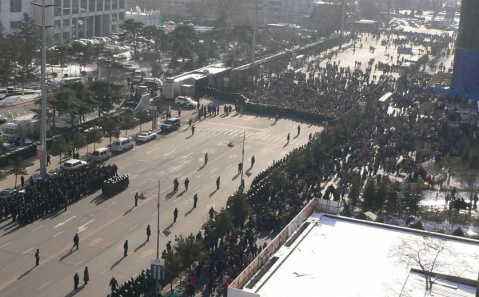
“May golden week” canceled 五一黄金周取消
December
The term “golden week” has been tied with people-packed stations and airports, busy, crowded tour sites, and the bonanza grabbed by businessmen. Born in 1999, the Golden Week has gradually melted into people’s life, while today its mission of stimulating economy is surpassed by the negative effect. This year, one of the three golden weeks was canceled after a public discussion and the break time was allocated to three more traditional festivals. The change also demonstrated the country’s determination to protect the fading Chinese traditions.
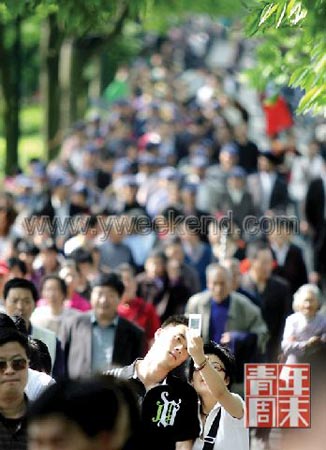
An assault on the overheated real estate 房地产攻坚战
2007
The surging real estate price staggered many Chinese in 2006, while 2007 witnessed the macroeconomic control of the industry. Firstly, the new Property Law was passed in March, an action that restricted the “enclosure movement” of the developers. Later in April, 8 central departments collaborated to check the illegal methods used by developers and agents to bid up the price. On 1, August, the central government issued the 24th Resolution that emphasized on building low-price economy residential to provide over 10 million families with affordable housing. Also, the interest rate has been increased for 6 times this year and the down payment of property mortgage also leveled up. The series of measures worked. The heated Shenzhen market, whose average price rose by 50% in the first 7 months, faced a dwindling volume of trade and several other cities in China also confronted a cold snap on the industry.
Price going up 物价上升
2007
Pork, instant noodle, oil and so forth, —- the prices of various goods rose so quickly that people could feel their daily life considerably affected.
2007 is the pig year in Chinese traditional calendar and the pork price echoed. Up till June, the price has increased by 71% compared to last year. In Dong Guan, the pork valued 40 RMB ($5.4)/ Kg. The rise made the prime minister Wen Jiabao said, “We are taking measures to help you afford pork.” Also, instant noodle was getting dearer. Several food companies united to drive up the price this year. The oil followed closely. In Chongqing, to catch the chance to buy discounted edible oil, 3 people were dead of trample by packed, seething crowd. The growth rate of CPI in 2007 was estimated to be 4.7%.
